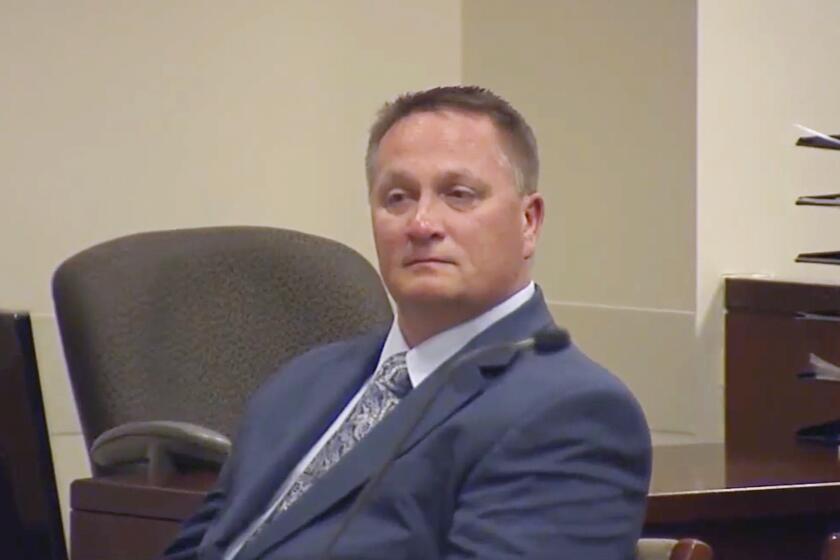Captive Asks Supreme Court for Deadline
Lawyers for Jose Padilla, a U.S. citizen held as an “enemy combatant,” asked the Supreme Court on Thursday for the final word on how long the Bush administration could legally hold Americans accused in the war on terrorism without criminal charges or a trial.
Padilla has spent more than three years behind bars and has yet to be brought to court. His lawyers said in their petition to the high court that his predicament was blatantly unconstitutional for a U.S. citizen. Padilla is a native of New York and was arrested in Chicago.
The lawyers want the Supreme Court to rule that the Bush White House has overstepped its legal authority by holding “without charge an American citizen arrested on American soil” during a war on terrorism that is “indeterminate in scope and time.”
But the government, which won a major ruling in the case last month when the U.S. 4th Circuit Court of Appeals decided Padilla could be held without trial, said the president had the authority in wartime to identify enemy combatants and hold them indefinitely.
Prosecutors warn that granting Padilla a trial would risk his eventual release and the possibility that he would take up arms against the U.S. Padilla is in a Navy brig in South Carolina.
When Padilla was arrested at O’Hare International Airport in May 2002 after returning from Pakistan, the government said he had plotted to explode a radioactive “dirty bomb” in the U.S. Some officials have since backed off that scenario, focusing on allegations that he fought against U.S. forces in Afghanistan and is an enemy combatant dangerous to this country.
Only the justices, Padilla’s lawyers told the Supreme Court, “possess the national authority to conclusively resolve” whether an American’s right to due process can be upheld without endangering the public by risking terrorist attacks.
Legal experts believe the Supreme Court, waiting for the government’s response to Padilla’s petition, will decide by the end of this year whether to take the case. It’s a unique opportunity for the high court to set uniform standards on how far the White House can proceed with enemy combatants, they say.
“I also hope that Congress passes some legislation that clarifies these issues,” said Carl W. Tobias, a law professor at the University of Richmond in Virginia.
Former Air Force lawyer Scott L. Silliman, a Duke University law professor, said disputes also needed to be settled involving other enemy combatants, including Taliban fighters being held indefinitely at the U.S. naval base at Guantanamo Bay, Cuba, and top Al Qaeda figures reportedly in custody around the world.
He predicted that the administration ultimately would have to make decisions on their fate, if not prodded first by the Supreme Court.
“The problem is, what do you do with them?” he said. “You can’t just keep them indefinitely.”
More to Read
Start your day right
Sign up for Essential California for news, features and recommendations from the L.A. Times and beyond in your inbox six days a week.
You may occasionally receive promotional content from the Los Angeles Times.







